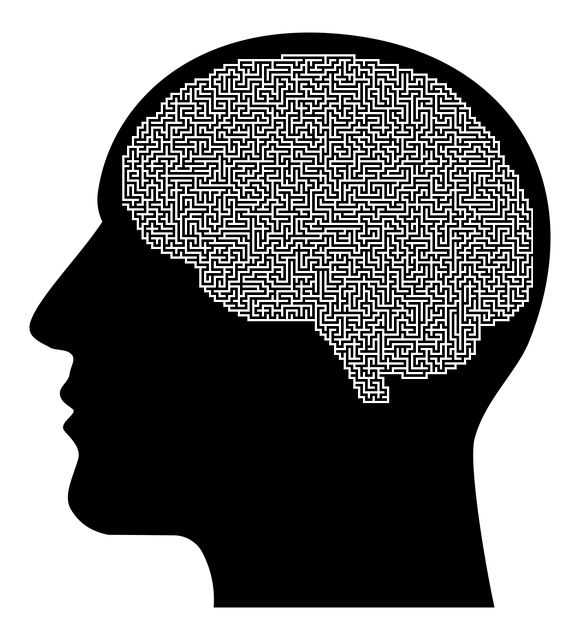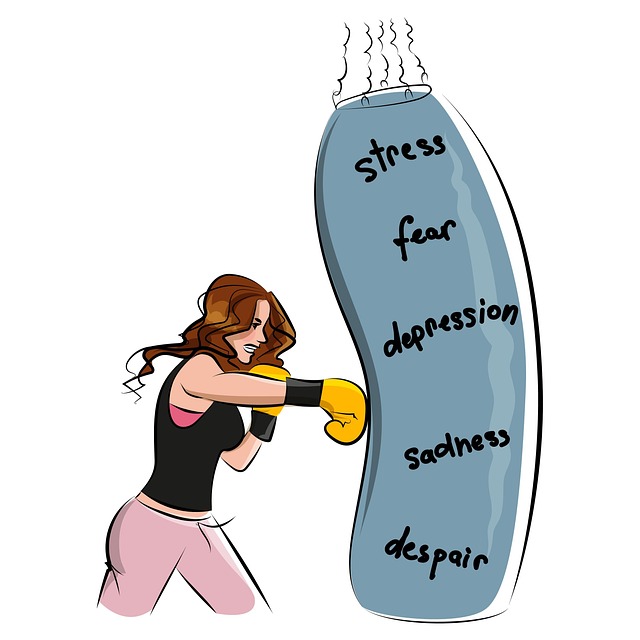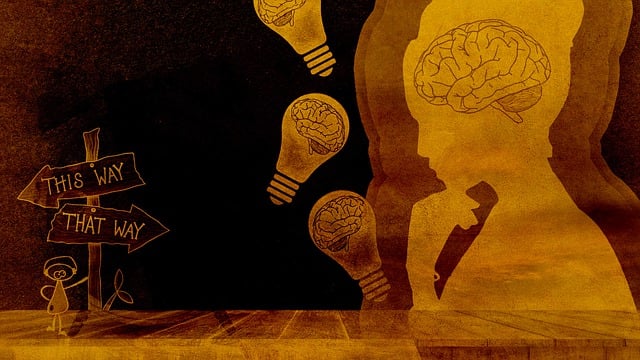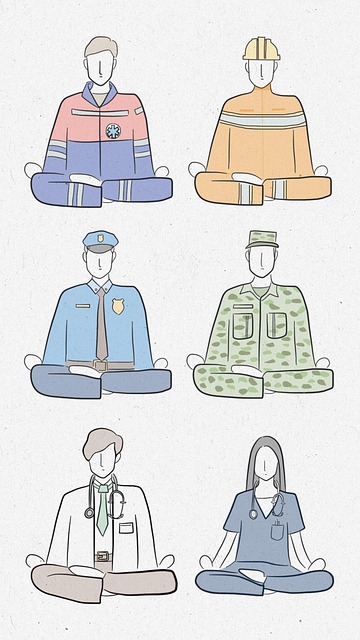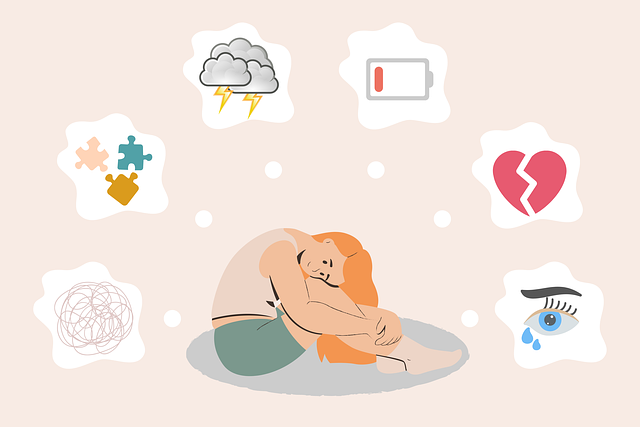Boulder offers specialized therapy for panic disorder and anxiety attacks, focusing on understanding root causes like trauma or overactive fear responses. Techniques include CBT, self-awareness exercises, positive thinking, and mindfulness meditation. Cultural sensitivity in mental healthcare personalizes interventions, making them more effective. Incorporating daily therapy practices, burnout prevention, and community support is crucial for managing stress and overcoming challenges related to Boulder Panic Disorder and Anxiety Attacks.
Stress management techniques are essential tools for maintaining mental health. In this article, we explore effective strategies to combat stress, focusing on Boulder Panic Disorder and Anxiety Attacks Therapy. Understanding the root causes of stress is crucial, as is recognizing the signs of panic disorder and anxiety attacks. We delve into various techniques, from mindfulness practices to cognitive-behavioral therapy, offering insights on how to integrate these therapies into daily life. Additionally, we discuss overcoming challenges and tracking progress for sustained well-being.
- Understanding Stress, Panic Disorder, and Anxiety Attacks
- Techniques for Effective Stress Management
- Integrating Therapy into Daily Life
- Overcoming Challenges and Tracking Progress
Understanding Stress, Panic Disorder, and Anxiety Attacks

Stress is a natural response to demanding situations, but when it becomes overwhelming and persistent, it can lead to various mental health challenges. Panic disorder and anxiety attacks are among the most common conditions arising from prolonged exposure to stressful events or traumatic experiences. These disorders manifest as sudden, intense feelings of fear or discomfort, often accompanied by physical symptoms like rapid heartbeat, sweating, and shortness of breath. In Boulder, panic disorder and anxiety attack therapy is a specialized field that focuses on helping individuals manage and overcome these debilitating conditions.
Understanding the root causes of such attacks is crucial for effective treatment. Many times, they stem from a history of trauma or an overactive fear response triggered by certain situations or memories. Trauma support services offer safe spaces for individuals to process these experiences and develop coping mechanisms. Self-awareness exercises and positive thinking techniques play a significant role in therapy, empowering individuals to recognize their triggers, challenge negative thought patterns, and cultivate a sense of resilience.
Techniques for Effective Stress Management

Stress management techniques play a pivotal role in mitigating Boulder Panic Disorder and Anxiety Attacks. Cognitive Behavioral Therapy (CBT) is a highly effective approach that teaches individuals to identify and challenge negative thought patterns, thereby reducing anxiety. Through CBT, patients learn coping strategies like deep breathing exercises and mindfulness meditation, which have been shown to significantly lower stress levels and prevent panic episodes.
Incorporating cultural sensitivity in mental healthcare practice further enhances these techniques’ efficacy. Understanding and respecting diverse belief systems and backgrounds allows therapists to tailor stress management interventions, ensuring they resonate with the patient’s unique experience. This personalized approach fosters a sense of comfort and engagement, promoting positive thinking and emotional well-being. Additionally, encouraging positive self-talk and reframing negative scenarios can significantly contribute to anxiety relief, empowering individuals to face stressful situations with resilience and confidence.
Integrating Therapy into Daily Life

Incorporating therapy into daily life is a powerful strategy for managing stress and overcoming conditions like Boulder Panic Disorder and Anxiety Attacks. The key lies in making therapy a sustainable practice, rather than a sporadic event. This can be achieved by choosing therapeutic approaches that align with individual preferences and lifestyles. For instance, cognitive-behavioral therapy (CBT) offers practical tools to challenge negative thoughts and behaviors, making it easily adaptable for daily use. Regular practice of CBT techniques can help individuals better manage stress and anxiety in their everyday routines.
Cultural sensitivity in mental healthcare practice plays a crucial role in this integration. Therapists should be adept at tailoring their approach to respect diverse cultural backgrounds, ensuring that treatment methods are inclusive and effective. This sensitivity fosters a deeper connection between therapist and client, enhancing the therapeutic experience. Additionally, burnout prevention strategies, such as setting clear boundaries and prioritizing self-care, are essential for maintaining a consistent therapy practice. Confidence boosting exercises within therapy sessions can further empower individuals to face daily stressors with resilience.
Overcoming Challenges and Tracking Progress

Overcoming challenges is a significant aspect of stress management and mental well-being. Many individuals struggle with anxiety disorders, such as Boulder Panic Disorder, which can be overwhelming. Therapy plays a pivotal role in teaching effective coping strategies to manage these attacks. Through specialized treatments like cognitive-behavioural therapy (CBT), patients learn to challenge negative thought patterns and replace them with realistic, positive ones. This process empowers individuals to regain control over their emotions and react calmly during triggering situations.
Tracking progress is essential for maintaining motivation and assessing the effectiveness of stress management techniques. Regular self-awareness exercises can help monitor emotional regulation skills, allowing individuals to recognize when they’re successfully managing stress levels. Moreover, participating in a community outreach program implementation can provide additional support and foster connections with like-minded people. This holistic approach ensures that individuals not only learn tools for overcoming challenges but also gain a sense of community and ongoing encouragement.
Stress management techniques are powerful tools for navigating life’s challenges, particularly for those dealing with panic disorder and anxiety attacks in Boulder. By understanding stress triggers and employing effective strategies, individuals can regain control over their well-being. Integrating therapy into daily routines enables continuous growth and progress tracking, fostering a healthier, more balanced lifestyle. With dedication, these techniques can revolutionize one’s approach to stress, leading to improved mental health and overall quality of life.



